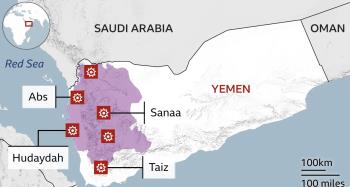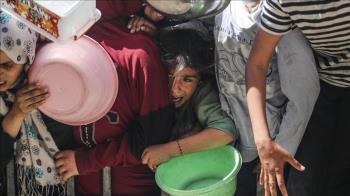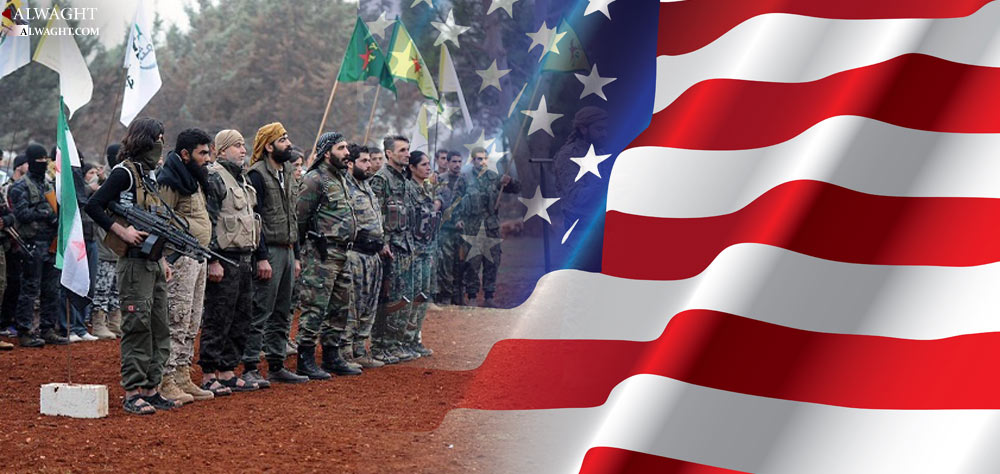Alwaght- When the Syrian army, backed by an array of allies including the Iran-led Axis of Resistance and Russia, managed to retake the northern city of Aleppo from al-Nusra Front terrorists, the balance of power was tipped in favor of Syrian government. The peace negotiations ensued in Astana, Kazakhstan, engaging the delegations representing the Syrian government and the armed opposition groups. This round of peace talks saw considerably minor presence of the US in comparison to the past, and the ceasefire was agreed between the warring sides after a show of support by Iran, Russia, and Turkey.
To offset their declined role in the latest negotiations and take back their lost share from Russia and Iran, the Americans adopted a new scenario to press ahead with formerly-followed policies in Syria. The scenario was offering backing for the Kurdish Syrian Democratic Forces that are bracing for reclaiming Raqqa, de facto capital of ISIS in Syria, from the terrorist group. Actually, the main idea behind the renewed US intervention in Syria and offering direct support for the Kurdish forces is highlighting its rejuvenated role in Syria and striking a new balance in the face of Russia and Iran.
Making sure that backing Turkey and the Free Syria Army (FSA) have failed to materialize the essential Washington’s goals in Syria, the US under its new President Donald Trump has put top on its agenda direct support of the Kurdish forces on the battlefield, despite objection by Ankara to the measure. The recently announced plan to send 400 Marines to Syria’s north to have the back of the Kurdish militias on the ground is an initial step of the new scheme.
According to experts on Syrian developments, the ultimate goal of the White House that since the beginning of its intervention has been pursued is breaking Syria up into smaller regions. Holding the Kurdish trump card, the Americans are after a bigger toehold in Syria’s northern regions to consequently expand their influence in the whole region. The scenario is said to be dangerous enough to inflame even more chaos and insecurity in the region once it is implemented successfully.
Now even the Turks, despite alliance with Americans in the region, have begun to feel the jeopardy of current American trend. Ankara has sharply expressed its unwavering opposition to the Washington’s direct advocacy of the Kurdish forces in battle. At the same time, the Iranian and Russian voices began to rise against the scenario. Tehran, standing firm beside Damascus, has warned against any plan that partitions Syria, and is struggling to foil such plans in association with Russia and the Resistance camp.
Therefore recapture of Raqqa by the Kurdish forces will face serious barriers, most importantly and primarily from Turkey that comes against using the Kurdish forces for retaking Raqqa and thus accentuating their role in the Syrian future. On the other side, Washington’s interventionist policy under the cover of counterterrorist fight and backing the Kurds can come costly to Moscow policies, an outcome that will urge Russia to relatively disagree with the new American policy. The most expected option for Moscow is strengthening the pro-Assad forces and contributing to liberation of the Syrian terrorist-held territories at the hands of Syria’s regular military forces. So any decisions and agreements on Syria future are inapplicable without taking into account interests of leading actors such as Russia and Iran.
Besides, the issue must be considered that the Syrian Kurds are receiving military association from Kurds of Iraq, and actually are in alliance with forces under command of Masoud Barzani, the president of Iraq’s Kurdistan region. If this Kurdish coalition well gets the American aids, it can pursue the US-favored scenario at least in Raqqa and a couple of other regions. But the ideas of three actors of Russia, Turkey, and Iran on Kurdish autonomy are non-negligible.
Either way, Washington will bring at work all of its logistic potentials to highlight the Kurdish role in liberating the Syrian territories and also in the future of the country due to its earlier special relations and alliance with the Kurds, though it faces a lot of hurdles ahead. This is because any accentuated Kurdish role will mean representation of the American role, something disapproved of by Moscow and Tehran. But the current conditions only allow a limited role for the Kurds in Syria, and it is unlikely that they rise as a top battlefield actor in a multi-fronted and multi-sided battle. This means that the United States' Syria scenario for the Kurds is doomed to fail in its initial stages.



























